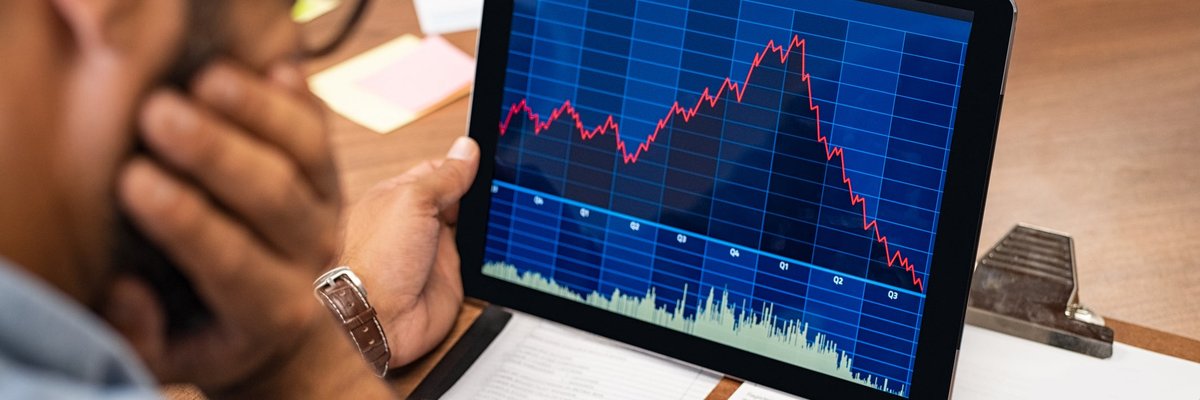Bitcoin Breaks Beneath $33,000 Setting New 2022 Low. Is Now the Time to Buy?
KEY POINTS
- Bitcoin continued its losing ways from last week, setting a new low for 2022 this morning breaking beneath January's bottom of $32,951 this year.
- Many analysts attribute the steady drop in asset price action to macroeconomic issues as the Fed increased interest rates to slow increasing inflation.
- According to CoinMarketCap at the time of writing, all top-20 cryptos based on market value were in the red.
Bitcoin is down nearly 5% over 24 hours and more than 50% from its peak price in November 2021.
The broader cryptocurrency market is trending down today. It's off more than 5% across the board, reaching an overall market cap of $1.51 trillion. All top-20 crypto assets are in the red according to CoinMarketCap at time of writing.
Earlier today, Bitcoin (BTC) set a new low for 2022 at $32,185, which is the lowest level it's fallen to since July 2021. Over the past 24 hours, Bitcoin is down 5%, for the past seven days it's declined 15%, and it's fallen more than 50% from its all-time of $69,000 set in November 2021, according to CoinMarketCap. Meanwhile, Bitcoin's trading volume is spiking 34% across cryptocurrency exchanges today as investors buy and sell this leading crypto.
Bitcoin is following broader market sell off
Bloomberg reported this morning that equity markets across Asia and Europe were down single digits, attributing the sell off to broader macroeconomic issues. Specifically citing rising interest rates to fight rising inflation, as well as banks restricting lending and access to cash as primary drivers of the decline. Investors are leaving higher-risk assets for safer investments that promise higher returns as interest rates climb.
Yet, despite these broad drops across the financial markets, the long-term prospects for established cryptocurrency assets -- primarily Bitcoin -- are sound.
Should you buy BTC?
The underlying fundamentals supporting Bitcoin have not changed. The fact that it's widely accepted, easy to send and receive globally, divisible into smaller amounts, and an extremely scarce asset contribute to Bitcoin's ultimate utility and worth as a store of value similar to gold. Remember, there are only 21 million Bitcoin that will ever be created, of which 19 million have been already mined. Basic economics tells us that as a desired asset becomes more scarce, it increases in value. Increasing numbers of Bitcoin investors are holding the asset for the long term, reducing its availability. Last year, Bitcoin rewarded investors with a 70% return and annualized returns of more than 220% for the 10 years before. While past performance is not a guarantee of future gains, Bitcoin's foundational value proposition remains unchanged.
Before investing anything, it's important for individuals to do their own research and only use funds that they can afford to lose. This is not financial advice, but we all know that the cryptocurrency markets are volatile. If you're interested in the digital asset sector, one way to mitigate that volatility is through dollar-cost averaging where you designate and automatically invest a set amount of money at a predetermined interval into a given asset. That method tends to smooth out the pricing entry points of any asset -- including Bitcoin -- over time.
Our Research Expert
We're firm believers in the Golden Rule, which is why editorial opinions are ours alone and have not been previously reviewed, approved, or endorsed by included advertisers. Motley Fool Money does not cover all offers on the market. Motley Fool Money is 100% owned and operated by The Motley Fool. Our knowledgeable team of personal finance editors and analysts are employed by The Motley Fool and held to the same set of publishing standards and editorial integrity while maintaining professional separation from the analysts and editors on other Motley Fool brands. Terms may apply to offers listed on this page.



